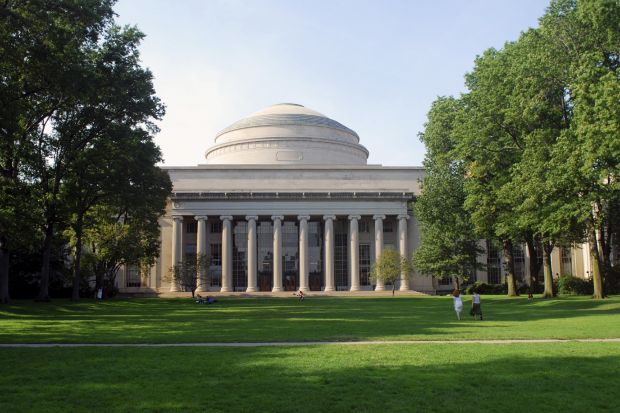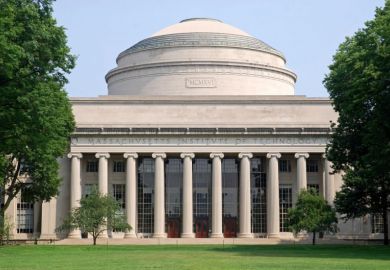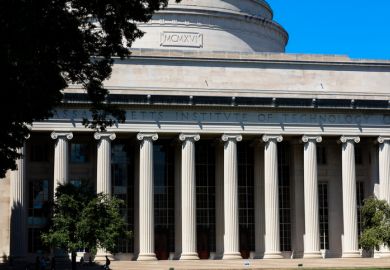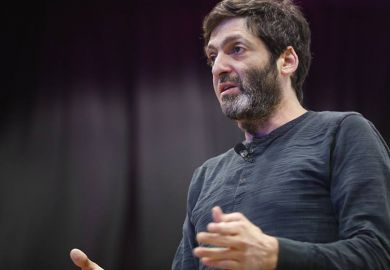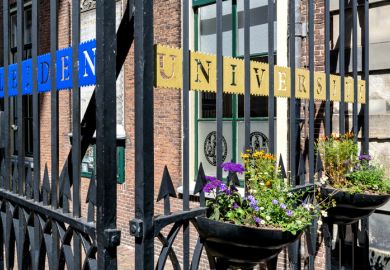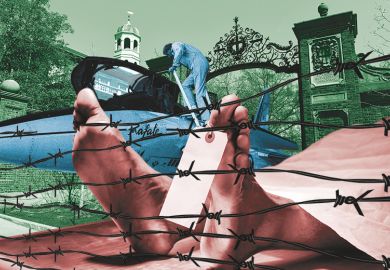A journal has retracted a 2019 article by authors at the Massachusetts Institute of Technology promising a revolution in global food production that instead has emerged as an alleged marker of MIT’s eagerness to cultivate donations from the notorious sex offender Jeffrey Epstein.
Plos One, in a notice of retraction, cited a series of concerns about accuracy and replicability in the article by authors at MIT and the University of Texas at Austin who promised a breakthrough technology in cyber-agriculture.
“We regret that the issues with this article were not identified during the pre-publication peer review process,” the journal said.
The trailblazing open-access journal took the action as a former MIT scientist who once led the research project, Babak Babakinejad, filed a lawsuit in a state court in Massachusetts accusing MIT of forcing him out of his job after he tried to raise warnings about the claims MIT was making about the purported invention.
Dr Babakinejad left MIT in September 2018 after his contract was not renewed, and he accused the institution of penalising him for whistleblowing about fraud in both research and fundraising, and for environmental violations related to its “ambitious but ultimately fanciful” agricultural work.
The dispute is part of a wider set of scandals growing out of Epstein’s association with MIT, led by its acceptance of $850,000 (£620,000) in donations from the late financier following his 2008 conviction and guilty plea to a charge of procuring a teenage girl for prostitution.
The Epstein-MIT relationship centred on the MIT Media Lab and its then-director, Joi Ito, who resigned from MIT in September 2019 after The New Yorker revealed that he had helped to arrange and to hide the donations and contacts with Epstein.
The retracted Plos One article described Media Lab research into the creation of a contained artificial environment that its inventors called a “food computer”, in which crops could be grown in challenging environments worldwide. Dr Babakinejad said MIT officials knew that it did not work as claimed but maintained the ruse to encourage Epstein and other donors. Dr Babakinejad suggested in his lawsuit that top MIT officials understood the deception or should have been less credulous of it.
After Professor Ito’s exposure, MIT hired an outside law firm that spent four months investigating financial ties between Epstein – who died by suicide in 2019 – and the institution. The only resulting sanction it reported was a temporary suspension and reduction in pay and professional freedoms for Seth Lloyd, a professor of mechanical engineering who accepted donations from Epstein.
MIT, through a spokeswoman, reiterated its commitment to research integrity but said that it would not comment on any internal investigations. The spokeswoman noted, however, that MIT had updated its own internal news coverage crediting the Media Lab with pioneering work in cyber-agriculture to reference the Plos One retraction.
The case comes as a California jury assesses criminal charges over claims about another purported miniaturised device with expansive life-saving potential, an at-home comprehensive blood testing device put forth by the company Theranos, whose major investments included $100 million from former US education secretary Betsy DeVos and her family.
It also comes just weeks after the Proceedings of the National Academy of Sciences retracted an article in which Duke University researcher Dan Ariely – globally known for his popular writings and stage presentations on the phenomenon of human dishonesty – was alleged to have faked data on cheating. A Duke spokeswoman said the university would not comment on whether it planned any investigation of the matter.
Register to continue
Why register?
- Registration is free and only takes a moment
- Once registered, you can read 3 articles a month
- Sign up for our newsletter
Subscribe
Or subscribe for unlimited access to:
- Unlimited access to news, views, insights & reviews
- Digital editions
- Digital access to THE’s university and college rankings analysis
Already registered or a current subscriber? Login
